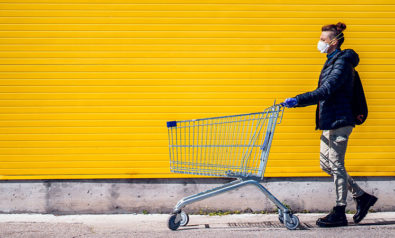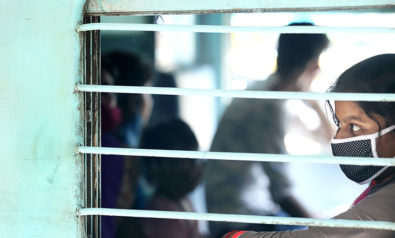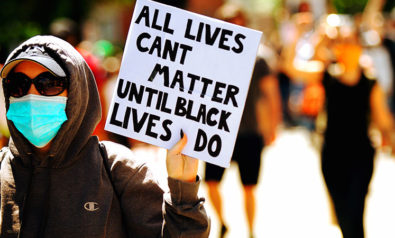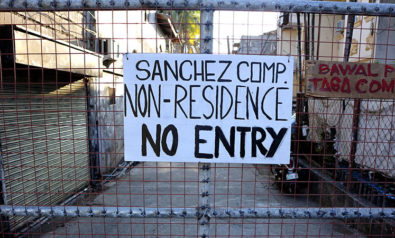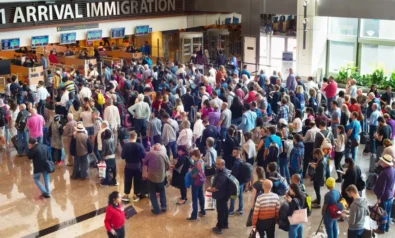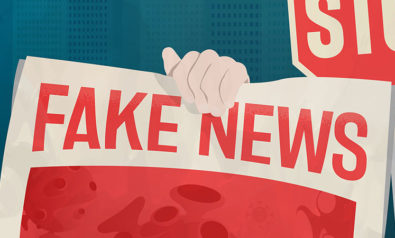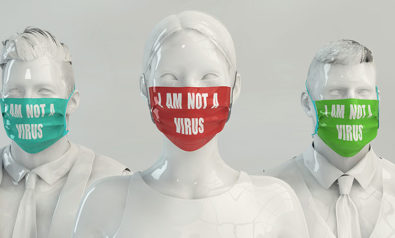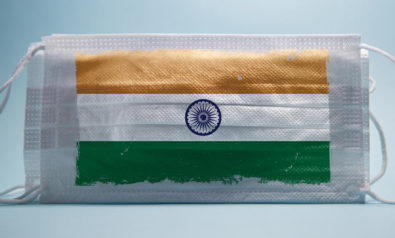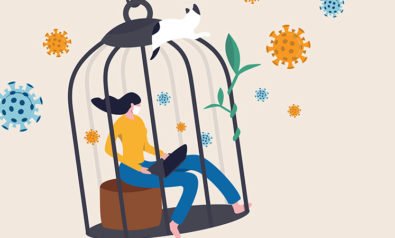We live in an age of accelerated individualization — or so sociologists and social philosophers like Ulrich Beck have told us for decades. We have accepted it, even if we did not necessarily like it. The citizens of the former Soviet empire were among the first to take note. In East Germany, in Czechoslovakia, in Hungary they might have hated the system. After its collapse, however, they started to deplore the lost sense of community and mutual solidarity that had existed before the fall of the Berlin Wall.
In Germany, the resulting mood has a name — Ostalgie, a nostalgic feeling for a time when neighbors still talked to each other and, perhaps, even helped each other. Nostalgia, of course, means looking back at the past with rose-tinted glasses. And perhaps the yearning for the old sense of community is just that — a yearning for something that never existed.
Solidarity Community
Solidarity is easy when the stakes are low. In the postwar period, most advanced liberal democracies developed relatively comprehensive welfare states. This was relatively painless, given full employment and limited life expectancy. Things changed with declining growth rates, escalating fiscal deficits, mass unemployment, migration pressures and falling birth rates. The result was what political scientists like to call welfare retrenchment, or the cutting back on public welfare expenditures.
Welfare retrenchment reflected at least two realities: governments’ severely limited space to maneuver given the pressures exercised by international financial markets, and governments’ lack of resolve to reintroduce progressive tax policy schemes that characterized the postwar period.
Solidarity is of the highest order in times of crisis. The current coronavirus pandemic is such a crisis. Yet the response on all levels has been disastrous. Take the European Union: The German government continues to state that the EU is a Solidargemeinschaft — a solidarity community — where the economically stronger support the economically weaker. To be sure, the coronavirus pandemic is not primarily an economic question. Yet it is a challenge for that Solidargemeinschaft that the German government extols.
The reality is a sobering. Germany, which is the main producer of face masks and protective gear in Europe, has introduced all kinds of measures to prevent companies from exporting these items to neighboring countries like Austria, leading Austrian health authorities to refer to the Germans as modern “robber barons.” The same charges have been made by Swiss authorities. But then, Switzerland is not part of the European Union. Worse still, Italy, which is part of the European Union, has largely been left in the rain, with disastrous consequences.
Or take the case of NATO. The alliance is supposed to be a community based on shared values. This week, German media revealed that the Trump administration tried to buy a small German biotech company, CureVac, that is supposed to have developed a promising anti-coronavirus vaccine, with the alleged proviso that “any inoculation would be available first, and perhaps exclusively, in the United States.” Again, this might be true or it might be false. Yet with the Trump administration, anything is possible, given the president’s desperate attempts to shore up his increasingly dim prospects for reelection.
Veneer of Civilization
Yet it is too easy to blame politicians. The past few days have glaringly shown that the breakdown of solidarity or, better, human decency, has reached down to the individual level. The coronavirus pandemic has once again shown that the veneer of civilization is very thin and that a crisis tends to bring out the worst in all of us. The by now infamous case of the man from Tennessee who bought up 17,700 bottles of hand sanitizer to make a killing on Amazon is just the tip of the iceberg.
His equivalent is a young German “entrepreneur” who seems to have made a small fortune with protective masks. There is no question — misery attracts greed. Just look at all the internet scams seeking to exploit coronavirus fears.
Of course, internet scammers have been around for ages. It should come as no surprise if they are trying to cash in on this most recent crisis. But they are hardly the problem these days. The real problem is all these ordinary supermarket customers who pretend the survival of the human race depends on the amount of toilet paper at their disposition. It is rather ironic that in this crisis, toilet paper has become the ultimate symbol of civilization. Those older among us might remember a scene from “Seinfeld” where Elaine is desperately asking for some toilet paper only to be told by her stall neighbor that she “can’t spare a square.”
The coronavirus pandemic will eventually be contained. Life will return to normal: You’ll go to a supermarket and the shelves will be full of toilet paper. The coronavirus scare of 2020 will be nothing more than an unpleasant memory. And yet, the pandemic is likely to leave traces in our collective memory of incompetence in the face of threat, of individual selfishness, of a profound sense of powerlessness. We have been challenged, and we have been found wanting.
The views expressed in this article are the author’s own and do not necessarily reflect Fair Observer’s editorial policy.
Support Fair Observer
We rely on your support for our independence, diversity and quality.
For more than 10 years, Fair Observer has been free, fair and independent. No billionaire owns us, no advertisers control us. We are a reader-supported nonprofit. Unlike many other publications, we keep our content free for readers regardless of where they live or whether they can afford to pay. We have no paywalls and no ads.
In the post-truth era of fake news, echo chambers and filter bubbles, we publish a plurality of perspectives from around the world. Anyone can publish with us, but everyone goes through a rigorous editorial process. So, you get fact-checked, well-reasoned content instead of noise.
We publish 2,500+ voices from 90+ countries. We also conduct education and training programs
on subjects ranging from digital media and journalism to writing and critical thinking. This
doesn’t come cheap. Servers, editors, trainers and web developers cost
money.
Please consider supporting us on a regular basis as a recurring donor or a
sustaining member.
Will you support FO’s journalism?
We rely on your support for our independence, diversity and quality.





